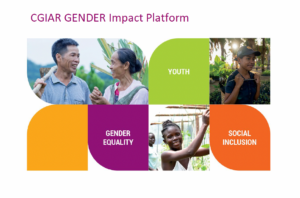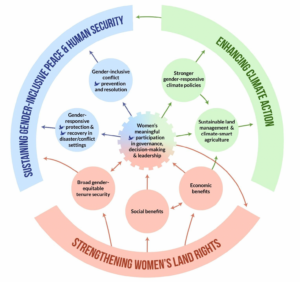Indeed, a holistic approach on how to feed the astronomical increase in global population is very important. We commend FAO, as pointed out by COAG during this session, its action plan for national, regional and global level for studies and assessments of natural resources for food and agriculture.
While it is recognized that change as regards food production and preservation of the environment and its inextricable link to climate change, awareness is not enough. If the agricultural programs on adaptation and mitigation to the phenomena of climate change is to be successful, information, knowledge and capacity building, especially for smallholder farmers, many of whom are women farmers, is the key.
Studies and evaluations of natural resources for food and agriculture have to take account of the actors, the women and men farmers. The studies and evaluations on adaptation, mitigation and resilience building to climate change have to be farmer driven. Policies, plans and programs have to be carefully laid down, made consistent with and should not impair the needs, interests and rights of small-scale food producers and indigenous peoples.
We welcome the High Level Experts’Panel’s research on climate change and food security in the CFS. The civil society mechanism, through a working group, is ready to interact with all interested parties on this matter.
WOCAN would like to see a continuum in the advocacy of women farmers and girls by being placed in the center of the stage in COAG as in the FAO Conference, the CFS and the UN CSW. An institutional monitoring of gender implications in agricultural production sustainability is needed being a cross cutting issue. This may go as an additional small letter e), among the objectives, of the Coordinating Unit that COAG may wish to recommend in the last paragraph of the background document.
A Coordinating Unit within COAG on Regional and Global Perspectives on Natural Resources for Food and Agriculture is a way forward. However, we cannot overemphasize the value of having a representative of the civil society organizations as a consultant, if not a participant in the Coordinating Unit. This too was mentioned by some COAG members.




